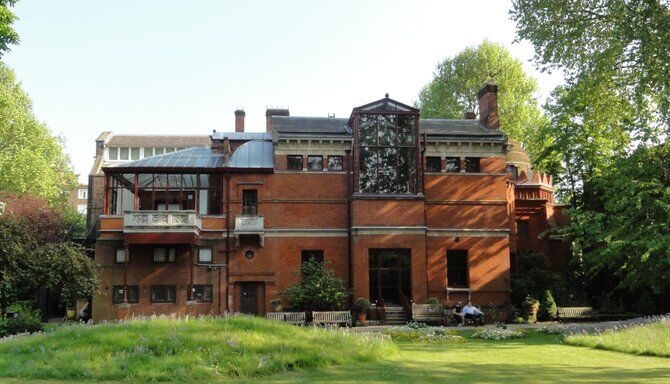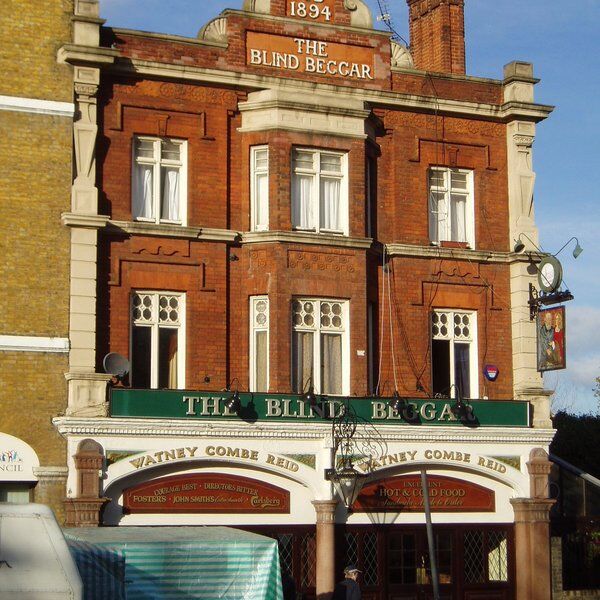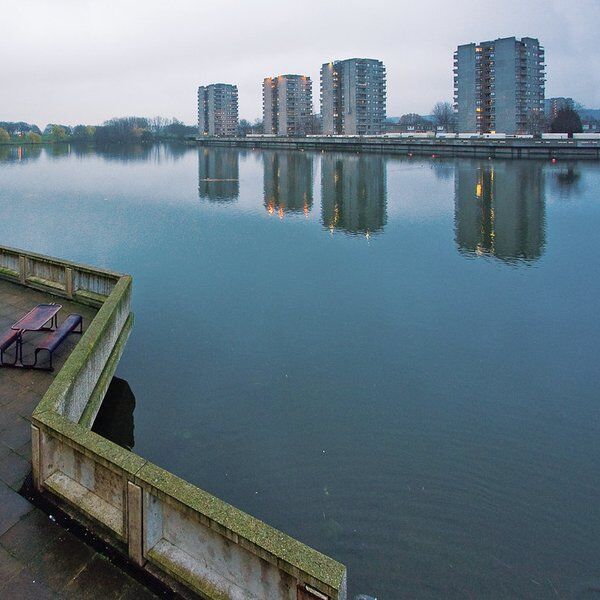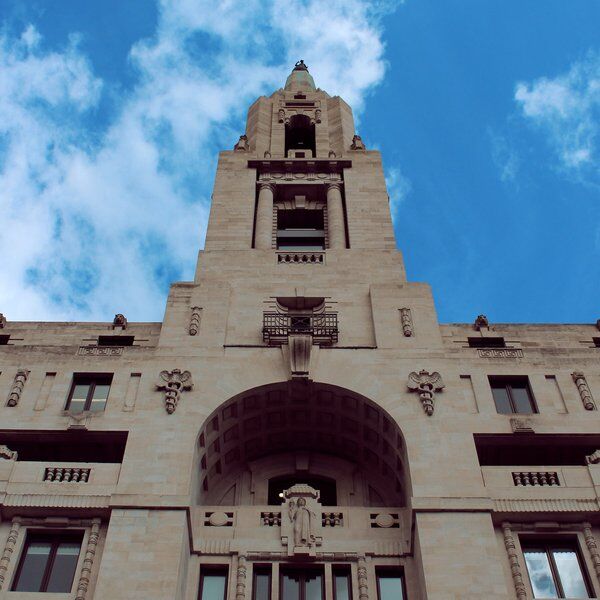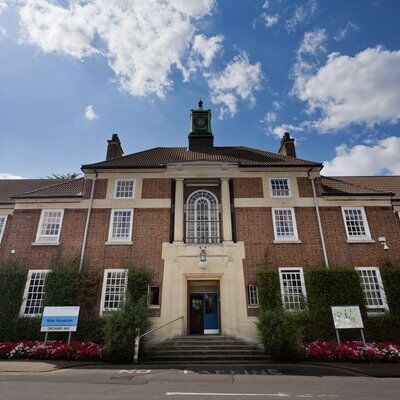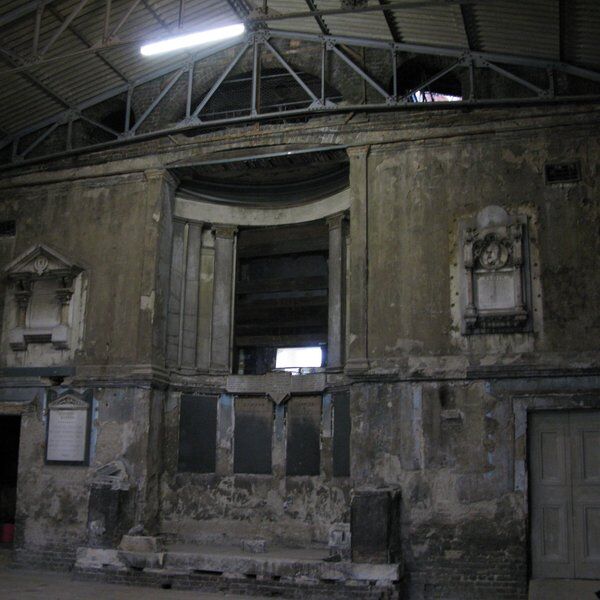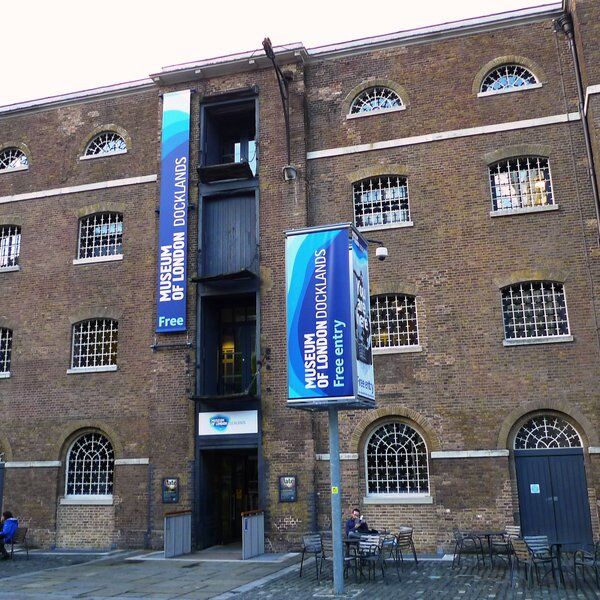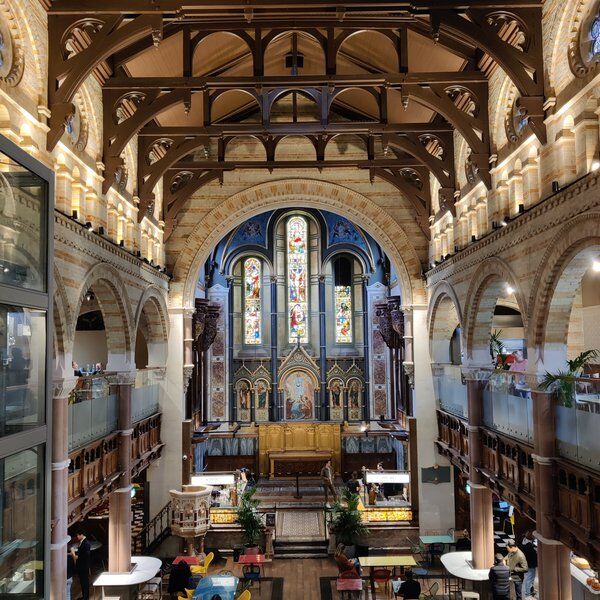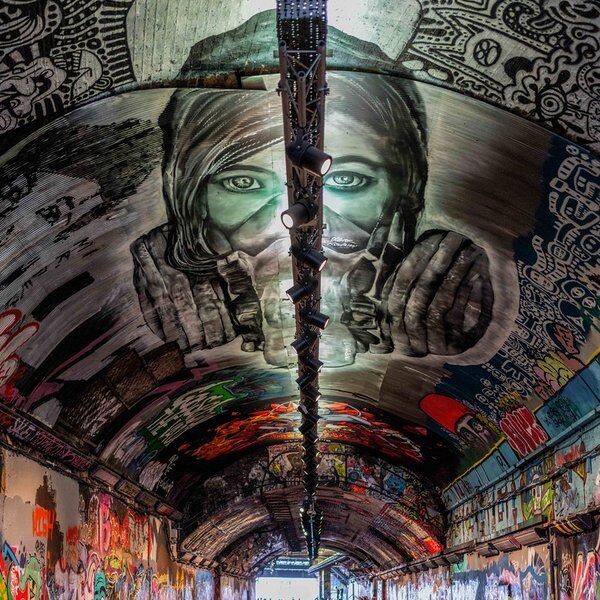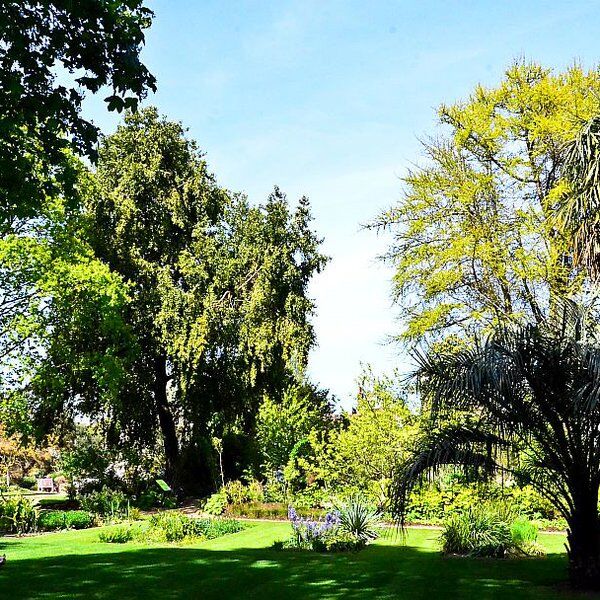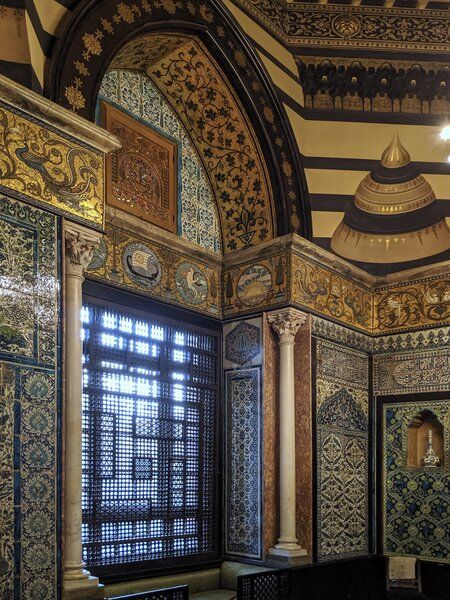
Discovering the Leighton House Museum
In Holland Park in West London, there are two historic homes: Leighton House and Sambourne House. These dwellings once belonged to Lord Frederic Leighton, a celebrated painter and president of the Royal Academy of Arts, and Edward Linley Sambourne, Chief Cartoonist at the satirical magazine Punch. They were both celebrated artists during the Victorian period, and their neighbouring residences, filled with exquisite sculptures, ceramics, and glassware, reflect their shared tastes.
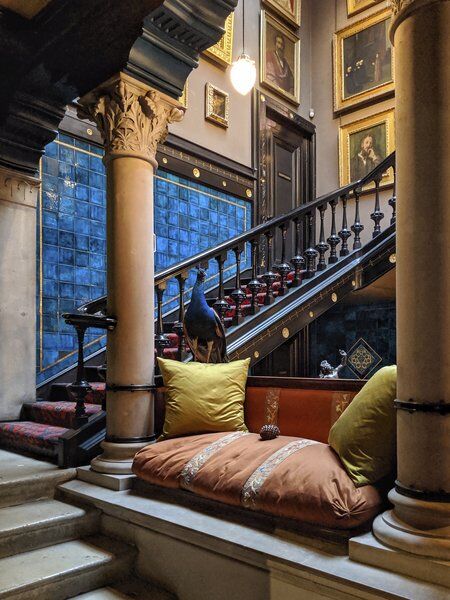
Despite the passage of time, the Leighton House Museum has undergone extensive restoration works to reclaim its former glory. The museum reopened its doors in 2022 following an £8 million redevelopment project. New additions to the museum include the De Morgan Café, historical displays, and an impressive 11-metre contemporary mural by Iranian artist Shahrzad Ghaffari.
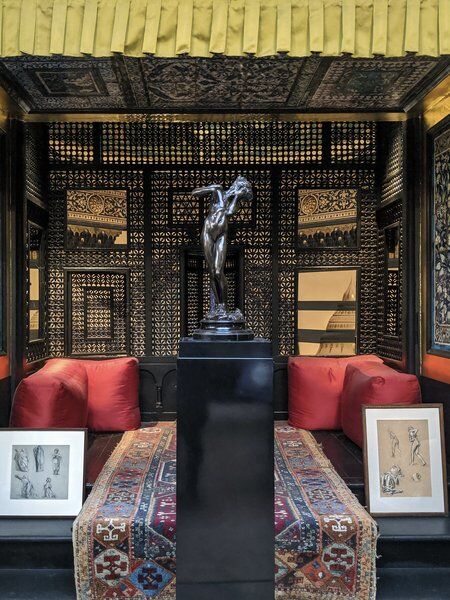
Today, the Grade II* listed Leighton House Museum, is a blend of art and history. Upon entering the Leighton House Museum, visitors are transported back in time to the Victorian era, where they can explore the life and work of Frederic Leighton. The house, often referred to as a "Palace of Art," has a real Oriental style, with Arab tiles, gold friezes, mosaic floors, and antique oriental rugs.
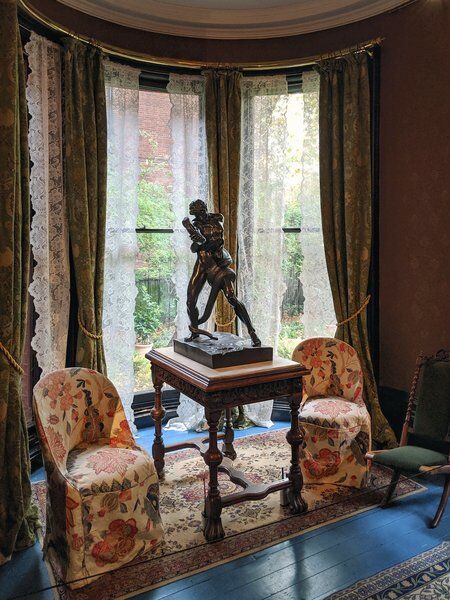
The History of Frederick Leighton
Lord Leighton and His Vision
Born on December 3, 1830, in Scarborough, England, Frederick Leighton developed a passion for art and went on to train in the artistic hubs of Florence, Rome, and Frankfurt. His style drew inspiration from the classical themes of the Italian Renaissance, where he sought to recreate beauty, elegance, and excellence.
In 1859, Leighton commissioned his grand residence, now known as the Leighton House Museum, to serve as both a sanctuary and canvas for his artistic vision. It was a remarkable project designed with influences from his extensive travels that would cement his place in art history forever.
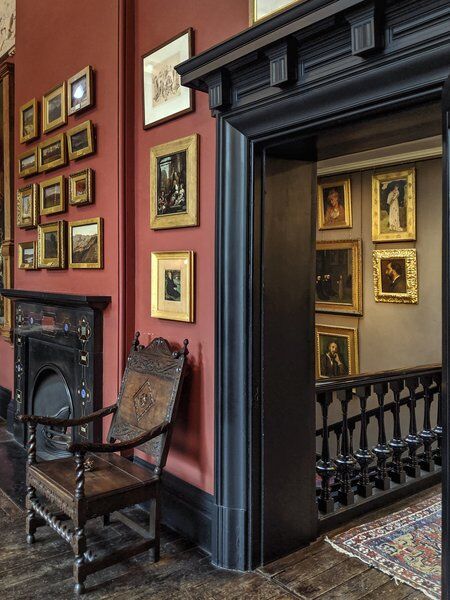
Lord Leighton and His Legacy
After Leighton's passing in 1896, his legacy lived on through the efforts of his sisters, Alexandra and Augusta. Determined to honour their brother's memory, they sought to preserve Leighton's home as a museum of his works. Despite initial challenges, including attempts to sell the house and over 1,000 of his own drawings actually being sold, the Leighton House Museum was opened to the public in 1929.
As a testament to Leighton’s legacy and the unwavering dedication of his sister's, the museum was honoured with a blue plaque by the London County Council in 1958. Additionally, it was awarded the European Union Prize for Cultural Heritage in 2012.
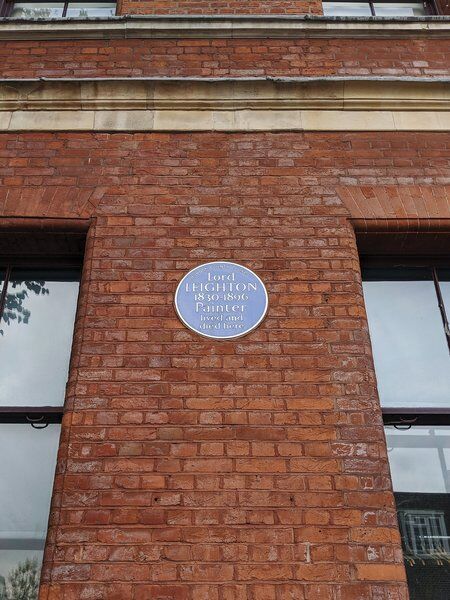
Designing the Leighton House
Architect George Aitchison designed the initial part of Leighton House in 1864, though the lease on the land was not granted to Frederic Leighton until April 1866. The construction, which cost £4500 at the time, was completed by the end of the year, showcasing a blend of red Suffolk bricks and Caen Stone dressings in a restrained Classical style.
Over 30 years, Aitchison extended the building gradually. The first phase was merely three windows wide, featuring a first-floor studio as the main room, furnished with a large central window to facilitate ample light for painting.
A gallery was situated at the east end, along with a separate staircase for models' use. Subsequent extensions included the addition of the "Arab Hall" in 1877-79, housing Leighton's collection of Middle Eastern tiles, drawing inspiration from the palace of La Zisa in Palermo.
In 1889, a winter studio was added to the building, followed by the top-lit picture gallery in 1895. Subsequent extensions to the museum, such as the Perrin Galleries, were made possible by the generosity of donors like Mrs. Henry Perrin, who funded additional gallery space in memory of her daughter Muriel Ida Perrin, an artist and sculptor. These extensions, designed by Halsey Ricardo, were completed in 1929.
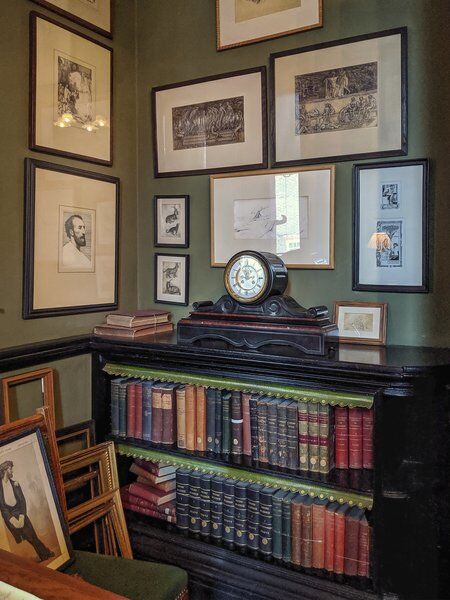
Inside the Leighton House Museum
Staircase Hall
A flamboyant symphony of brown and blue, the Staircase Hall features a stunning white and brown mosaic floor, turquoise blue tiles, and a bronze sculpture of a satyr from Greek mythology.
Narcissus Hall
Serving as the connecting passage between the Staircase Hall and the Arab Hall, the Narcissus Hall features an exquisite bronze sculpture of Dionysus and captures the essence of Narcissus with its rich blue tiles and gilded ceiling.
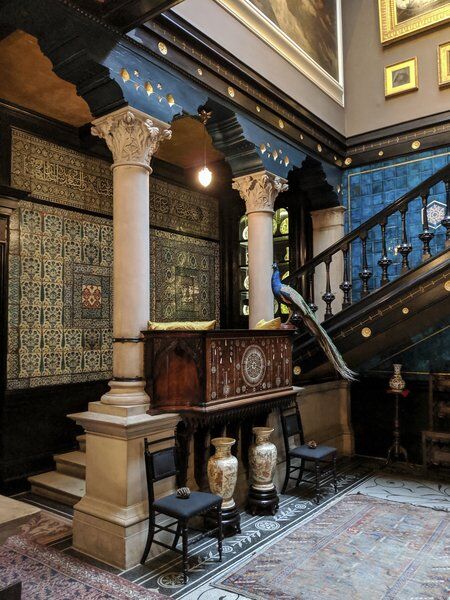
Arab Hall
The Arab Hall is the highlight of any visit, with decorative paintwork on the domed ceiling and the presence of a small fountain at the centre of the floor. Yet its most captivating features are the array of 17th-century tiles, wooden lattice-work windows from Damascus, and large 16th-century Turkish tiles. The west wall features a wooden alcove adorned with inset 14th-century tiles and Walter Crane's golden mosaic frieze and George P. White's marble work further enhances the room's grandeur.
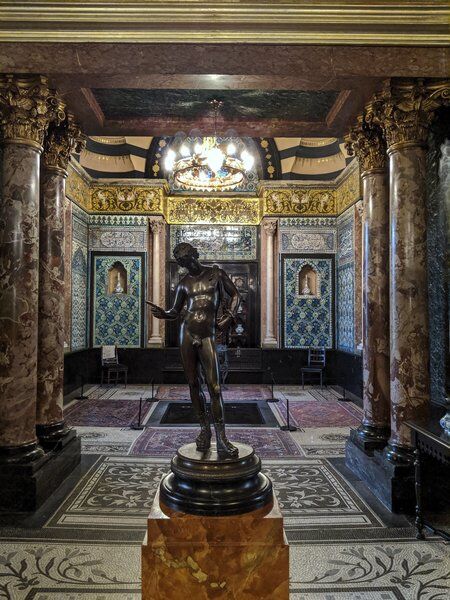
Library
Used by Leighton to carry out his duties as President of the Royal Academy, the Library is covered with prints and drawings from his collection, 19th-century Ottoman velvet, and a desk by Luke Hughs & Company.
Drawing Room
Once used as a "withdrawing" room for female guests, the Drawing Room features landscapes by French and English artists admired by Leighton, along with a Murano glass chandelier.
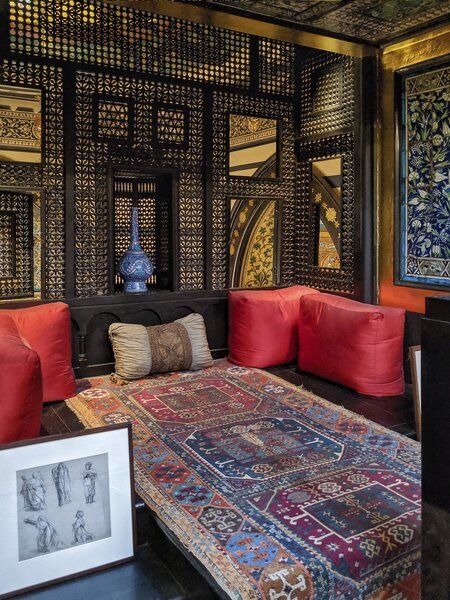
Dining Room
The Dining Room, boasting a table set for 18 guests, was a place for entertaining guests, adorned with pottery collected by Leighton on his travels.
Silk Room
Also known as his "snug," the Silk Room served as a more intimate studio space for Leighton and displayed works by contemporary artists who were his friends.
Bedroom
Leighton's bedroom offered a rare glimpse into his private life, decorated for comfort and solitude amidst the opulence of the rest of the house.
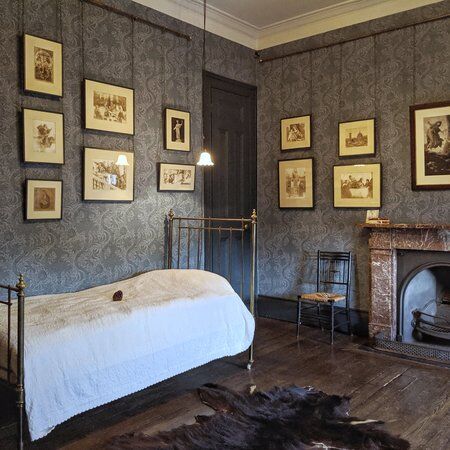
Studio
The Studio was the heart of Leighton's creative endeavours, where he produced all the works from the latter part of his career. It served as both a showroom and a functional workspace, hosting musical soirées for his friends every spring.
Winter Studio
Added at the end of the 1880s, the Winter Studio allowed Leighton to work through the winter months with its glassed-in greenhouse design, providing ample natural light and warmth whilst painting.
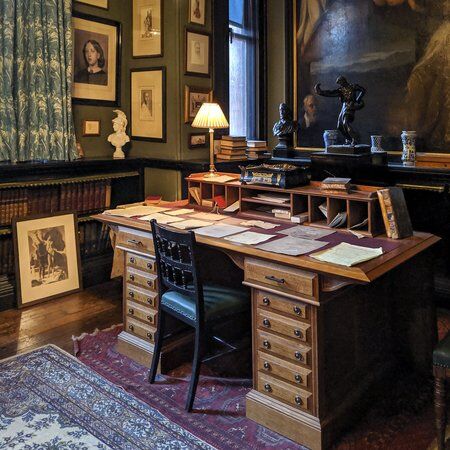
Exploring the Galleries of the Leighton House Museum
The museum hosts a range of events and exhibitions, from guided tours to limited displays of stunning artworks.
Permanent Collection
The museum's permanent collection boasts works by members of the Pre-Raphaelite Brotherhood, including John Everett Millais and Edward Burne-Jones, alongside 81 oil paintings by Leighton himself. The collection also features personal items, sketches, and sculptures, providing insight into the artist's life and creative process.
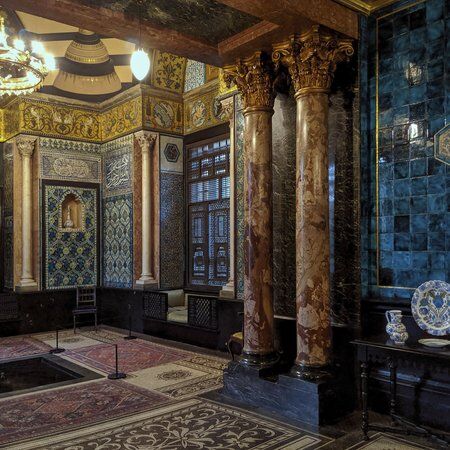
While Leighton's influence waned in the twentieth century, his masterpiece, "Flaming June," experienced a remarkable resurgence after its rediscovery in the 1960s. This iconic painting, once overlooked, captivated the world with its timeless beauty. Today, "Flaming June", alongside his other masterpieces in the collection, such as "The Death of Brunelleschi", represent Leighton's unparalleled skill and creativity.
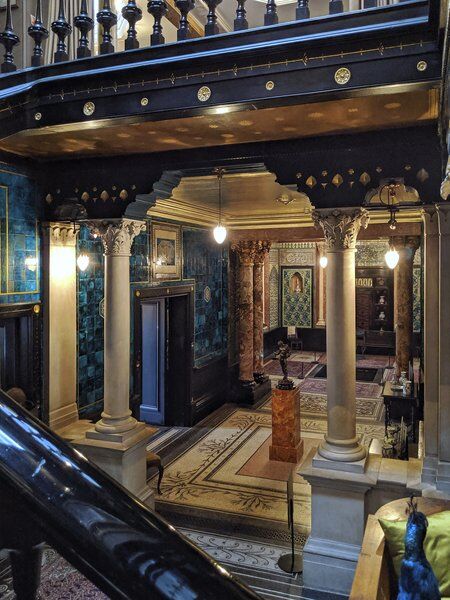
New Spaces
Two new gallery spaces have also opened at the museum. "Artists and Neighbours: the Holland Park Circle" delves into the story of the 'Holland Park Circle,' a community of prominent artists such as G.F. Watts to Whistler and Millais, whose studio-houses marked the rise of the artist as a celebrity. The museum provides a booklet with a map and further information for visitors to explore the artistic heritage of the Holland Park area.
The second exhibit, "A Life of Drawing: Highlights from the Leighton Collection" offers a rare glimpse into Frederic Leighton's prized collection of studies and sketches, which kept him inspired throughout his life.
Oneness
The Leighton House Museum’s latest contemporary artwork, "Oneness," is a captivating 11-metre-high mural hand-painted by Iranian artist Shahrzad Ghaffari. This masterpiece graces the curved walls of the new helical staircase across three floors, inspired by the 13th-century poem by Rumi, echoing cultural unity. The turquoise calligraphic strokes are an ode to the iconic Arab Hall's distinctive tiles, enveloping visitors in a fusion of modern art inspired by history and architecture.
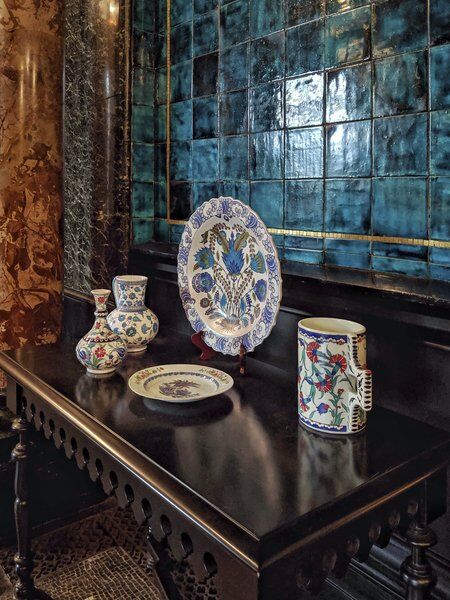
Sambourne House
The Sambourne House, is the sister property to the nearby Leighton House Museum. Built in the late 19th century, the Sambourne House is renowned for its exquisite interiors and historical significance.
Once the home of the esteemed Edward Linley Sambourne and his family, the house offers visitors a rare glimpse into the tastes and preferences of the Victorian upper-middle class.
The Sambourne House's association with the Leighton House Museum highlights its importance as a cultural landmark in London.
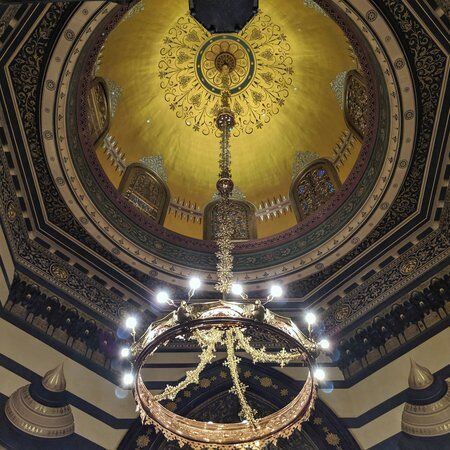
For more examples of homes that have been transformed into museums such as the Sir John Soane Museum in London or Kettle’s Yard in Cambridge, check out our blog.
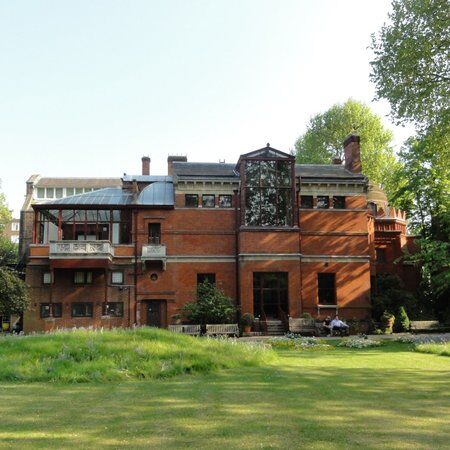
Explore London with CityDays
The best way to discover more hidden gems around London is to take your time and, ideally, have a pre-planned route that takes you past all the noteworthy nooks and hidden gems.
We can help you there!
The City combines the fun of an outdoor treasure hunt with the historic facts and whimsical trivia of a walking tour.
Answer riddles, solve puzzles and learn more about London’s 2000-year-old history in a new and interactive way - plus you get 20% off food and drink at a historic pub chosen by us!
Take the stress out of planning your visit to London and book your adventure today!
Not visiting London this time? Don’t worry, you’ll find us all over the world.
